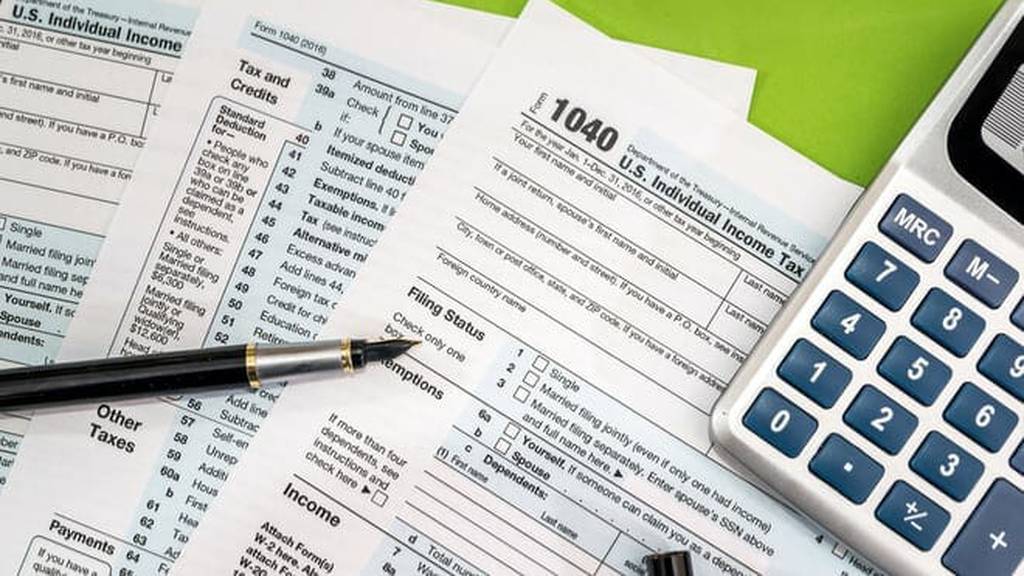If you’re self-employed, either full-time or part-time, as a sole proprietor, filing your taxes means filling out a Schedule C. Schedule C is a form on which you declare self-employment income and expenses related to your self-employment.
Read More: Cash App Taxes Review
Because filling out your Schedule C depends on accurate accounting, most of your work will be done during the year. You’ll want to keep accurate records of your income, as well as deductible expenses. Here’s a list of everything you can deduct against your self-employment income:
- Advertising
- Car and truck expenses
- Commissions and fees
- Contract labor
- Depletion
- Depreciation
- Employee benefit programs
- Insurance (other than health)
- Mortgage and other interest
- Legal and professional services
- Office expense
- Pension and profit-sharing plans
- Rent or lease on vehicles, machinery, equipment, or other business property
- Repairs and maintenance
- Supplies
- Taxes and licenses
- Travel, and certain meals and entertainment
- Utilities
- Wages (less employment credits)
Tax information for a sole proprietorship can be quite simple, but it can also get very complicated if you use lots of materials, pay contractors, have a home office, or deal with other tricky requirements. If you’re at all confused, it’s best to consult a professional.
An accountant or tax attorney can keep your books on the up and up, help you minimize your tax liability, and avoid paying back penalties or interest. A professional will be better able to explain capitalization requirements, and how to go about deducting large equipment purchases.
For example, equipment costs required to keep equipment operational - such as repairs, maintenance, and replacement parts - are generally deductible against income. Large equipment purchases, such as vehicles and expensive computer equipment, generally need to be capitalized and depreciated over several years. A tax pro can walk you through all of this. Thankfully, fees paid to the professionals are tax-deductible if you’re self-employed.
An Example
The above deductions can potentially save you plenty of cash. As an example, let’s consider a motor vehicle you use for business purposes. There are two deductions available: a standard rate deduction and a deduction of the actual expenses.
If you qualify for the standard rate deduction, all you need do is multiply your total business mileage by the proper rate (56 cents). To qualify, you must have used the standard rate in the first year you used a vehicle you own. If the vehicle is leased, you can start using the standard rate in the year you lease the vehicle, and then you must use the standard rate for every year of your lease thereafter.
The second option is to determine the business portion of expenses for gasoline, oil, repairs, license plates, and the depreciation of the vehicle. For the sake of an easy example, we’ll use the flat deduction.
Let’s assume that on every business day of the year (roughly 260 days) you drive just ten miles related to your business. That adds up to $1,456 you can deduct from your taxable income. At the current top tax rate of 37% and self-employment tax of 15.3%, failing to deduct that expense would cost you just over $761.49 in extra taxes!
At those rates, every dollar you fail to legally deduct is more than 50 cents you’ll pay in taxes. These same rules apply to everything you spend on your business.
As you can see, the difference between deducting and not deducting can be huge. Sure, time with tax professionals can be costly. But, remember that every dollar they help you deduct will reduce your tax bill by your marginal rate and the self-employment rate. Those numbers add up quickly.
The Best Free Tax Software
| Brand | Best For |
|---|---|
| Credit Karma Tax | All Individual Filers |
| TurboTax | Overall Features |
| TaxACT | Freelancers |
| H&R Block | Free Filers |
Read More: What Is The Cheapest Tax Software
So, if you’re at all confused, make an appointment to minimize your tax liability. You might even find it pays for itself. Should you need help filing your taxes this year, you may want to consider both Turbo Tax and H&R Block. Their free online tax software can make your tax nightmares disappear.









